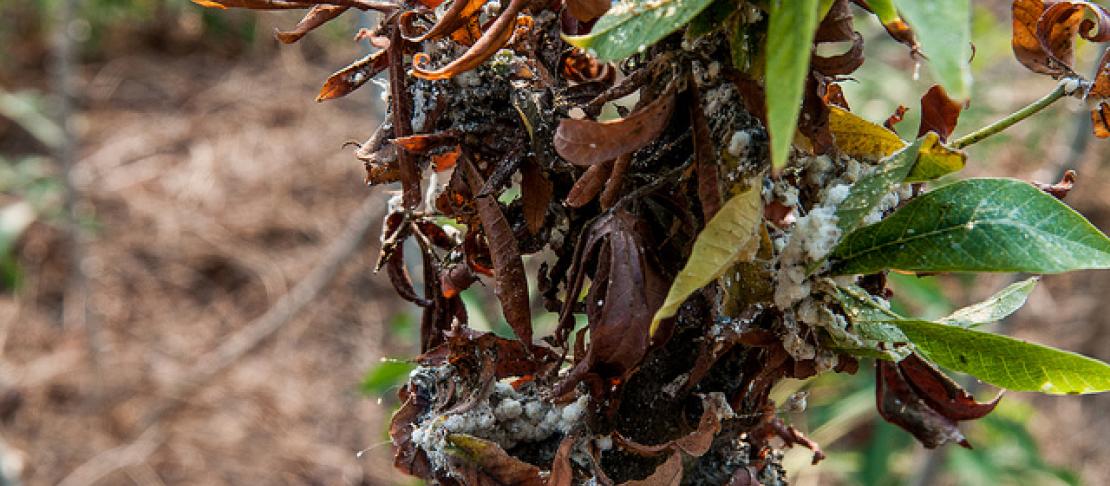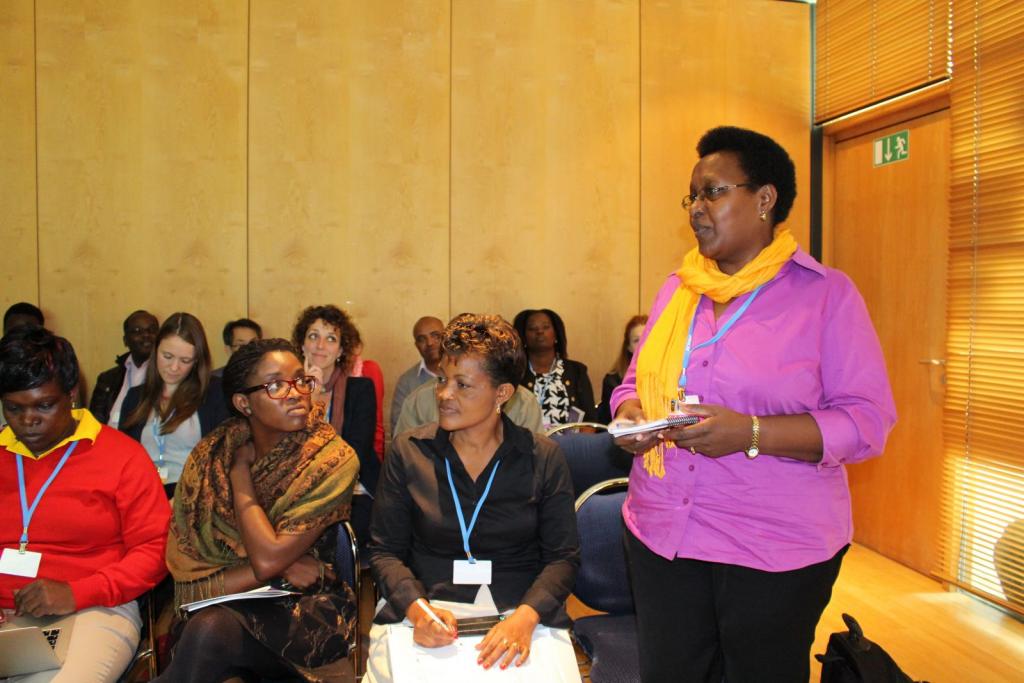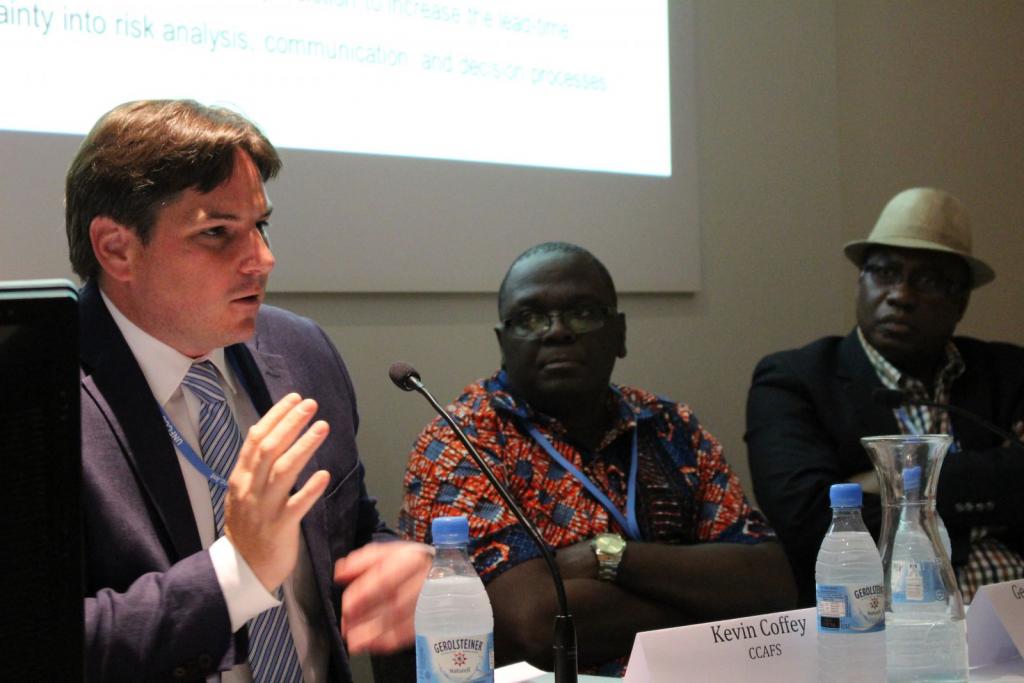Closing the gap in agriculture and climate science and policy in Africa

Climate-related pests and diseases do not respect borders and Africa needs early warning systems to anticipate and prepare for these risks.
Due to the sensitivity and fragility of its natural environment, coupled with a variable climate, Africa is home to some of the populations most vulnerable to climate-related shocks. Therefore, strategies such as early warning systems linked to local weather patterns need to be highlighted in current adaptation plans. This should go hand in hand with planned investments in financing, index-based insurance and continued technological advances to build a climate resilient and low emissions agricultural sector.
“Many African countries have developed their climate change response strategies and plans that set visions for low carbon development and climate-smart programs that are being mainstreamed in national planning processes that will build resilience in the agricultural sector,” said Charles Mutai, Kenya’s National Focal Point to the United Nations Framework Convention on Climate Change (UNFCCC). He was speaking during an official side event held on June 6 on the sidelines of the Bonn climate talks (SBSTA 42) in Germany.
The side event — 'Filling the Evidence Gap: Linking Agricultural and Climate Change Science and Policy in Africa’ — brought together over 40 participants. Photo: V. Meadu (CCAFS)
There is need for transformative adaptation of African agricultural systems that are backed by scientific evidence
Scientists, development workers and policy makers engaged in discussions and shared scientific evidence and lessons on how vulnerability to climate change is impacting Africa’s agriculture and how farmers can be supported by governments and other development agencies to adapt. The event was organized by the CGIAR Research Program on Climate Change, Agriculture and Food Security (CCAFS), together with the Government of Kenya (Ministry of Environment, Water and Natural Resources) and the Southern African Confederation of Agricultural Unions (SACAU).
More climate research needed
Considering that long-term climatic changes will have significant repercussions on food security and poverty, there is need for transformative adaptation of African agricultural systems that are backed by scientific evidence.
“Research on and development of early warning systems and contingency plans in Africa can be beneficial to farmers in preventing and mitigating climate risks in the agricultural sector. Indicators developed by scientists can help farmers and policy makers to understand the nature of the risk, ascertain the expected impact, and determine a sufficient response,” said Kevin Coffey from CCAFS. Photo: V. Meadu (CCAFS)
Improving early warning systems for agricultural resilience in Africa
A recently published CCAFS Info Note highlights six key messages that can improve early warning systems for agricultural resilience in Africa.
By investing in quality data, farmers and local level institutions will have access to early warning systems
“We need scientific vigor for early warning systems in Africa to enable farmers plan early action to address crop and livestock pests and diseases,” emphasized Julian Smith from Fera Science. Of interest is increasing investment in the quality, accessibility and integration of data, which determine confidence in early warning information. By investing in quality data, farmers and local level institutions will have access to early warning systems and develop contingency plans that are responding to their needs. For instance, farmers need to make informed decisions in terms of what crops to grow, where, when, what type of inputs to use and what breeds of animals to keep. Climatic shock events including emerging pests and diseases destabilize farmers.
View presentations from the side event
Enabling research-policy dialogue and partnerships for adaptation
“Why don’t African governments respond to early warnings so that communities can be cushioned against climate shocks such as pests and diseases?” asked George Wamukoya from the Common Market for Eastern and Southern Africa (COMESA) who facilitated the side event.
With the uncertainty of the extent and impacts of climate change at different scales (continental, regional, national, local), there is need to improve the scientific knowledge base to enable policy makers to act. This calls for research-policy partnership and dialogue to enable effective communication and use of scientific research outputs.
The African Group of Negotiators Expert Support (AGN-ES)
In Africa, gaps on biophysical, social and economic data of climate change impacts, risks and vulnerability are evident. In some regions, data is completely missing and thus providing opportunity to bring on board African scientists to bridge the gaps. Under the aegis of the Africa Group of Negotiators Expert Support (AGN-ES), scientists across Africa are working to support evidence-based policy making.
“African negotiators now have an opportunity to interact with climate scientists who are generating scientific evidence and data that can support negotiations and policy making,” pointed out George Wamukoya.
The AGN-ES team made three submissions to UNFCCC, SBSTA 42 on early warning systems, risks and vulnerability in agricultural systems and gender and climate change.
Key meeting recommendations
Scientists must work together with policy makers to avail user-friendly early warning information
The generation and use of evidence is becoming important for Africa in informing climate negotiations, designing of National Adaptation Plans (NAPs), Nationally Appropriate Mitigations Actions (NAMAs), Intended National Determined Contributions (INDCs), climate-smart agriculture (CSA) programs, low carbon development strategies and National Agricultural Investment Plans (NAIPs). Scientists must work together with policy makers to avail user-friendly early warning information that has mechanisms to integrated feedback from users. Also, successful adaptation strategies across Africa should be scaled up bearing in mind that Africa’s farming systems are shifting with the changing climate. Robust multidisciplinary partnerships are can allow for the quantification and evaluation of risks, vulnerabilities and impacts of climate change and adaptation strategies at various scales. Finally, there was a call to increase funding for climate-related research in Africa.
Additional reading:
Download papers by CCAFS and partners that were intended to help SBSTA discussions:
Dinesh D, Bett B, Boone R, Grace D, Kinyangi J, Lindahl J, Mohan CV, Ramirez-Villegas J, Robinson R, Rosenstock T, Smith J and Thornton P. 2015. Impact of climate change on African agriculture: focus on pests and diseases. CCAFS Info Note.
Coffey K, Haile M, Halperin M, Wamukoya G, Hansen J, Kinyangi J, Tesfaye Fantaye K, Dinesh D. 2015. Improving early warning systems for agricultural resilience in Africa. CCAFS Info Note.
More: New briefs highlight critical agriculture issues for UN climate talks
Photos: See photos from the side event
This story was written by Mary Nyasimi, Gender and Policy Specialist and Catherine Mungai, Partnerships and Policy Specialist. Both work for CCAFS East Africa. James Kinyangi, Regional Program Leader from CCAFS East Africa also gave contributions. Editing by Vivian Atakos, Communications Specialist CCAFS East Africa.
To follow progress on agriculture at SBSTA June 2015 please have a look at our blog series, and follow @cgiarclimate and @cgiarclimate_EA. on twitter.


